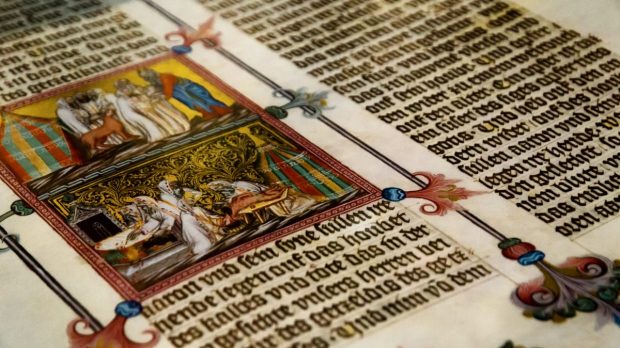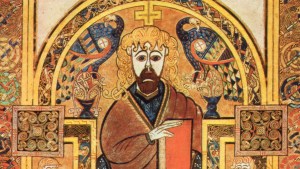In a bid to preserve European musical heritage, a new project has been launched that will scan and digitize hundreds of thousands of medieval musical manuscripts for preservation. Called REPERTORIUM, the project has just been awarded a 3 million euro grant by the European Commission.
REPERTORIUM is actually an acronym, which stands for Researching and Encouraging the Promulgation of European Repertory through Technologies Operating on Records Interrelated Utilizing Machines. It is an initiative launched by the Benedictine nuns of the Abbey of Notre-Dame de Fidélité, France. On their website, Neumz, they note that the project was selected as first among 55 entries and will focus on manuscripts from the Abbey’s extensive archive.
The goals of the project will include correlating more than 2 million musical works for concordance amongst various datasets. They expect to manually index some 127,000 chant manuscripts along with approximately 2,200 hours of recorded chant in the Tridentine form, which will correspond with the manuscripts. Furthermore, they will digitize between 1,800 and 3,000 operatic aria manuscripts, making the project as important to preserving secular European culture as it is to preserving religious musical history.
The REPERTORIUM project is expected to last for three years and will employ cutting-edge technology not only to preserve the historic manuscripts, but to promote them as well. The European Commission praised the project for identifying “ways of effectively promoting common European interests at a global level, leveraging resources of European Musical Heritage and forging closer cooperation between cultural, creative and economic partners.”
Furthermore, the Neumz website notes that they will utilize artificial intelligence (AI) and deep learning (DL), which will help create a platform as a means for the public to explore this rich new database.
They expect the database will include some 400,000 images of manuscripts, which will be available for the public to view through Oxford’s DIAMM portal.
Once completed, the project leaders envision the website as a place of community, with a consortium of musical and engineering experts and a long list of academic partners who will continue the development of the platform and even produce content. They intend to stage one of the operas they document, as well as organizing workshops and promotional events. Furthermore, the consortium plans to release a series of academic papers for musical scholars.
On Neumz, they wrote of the project:
“Overall, Repertorium will generally widen the accessibility, appeal, and knowledge of classical music heritage among the public and academics. In addition, the project represents a significant step towards creating a general musical artificial intelligence with machine equivalents for eyes, ears, memory, intellect, and imagination. Doing so is an essential first step in exploring the AI-human values alignment problem by making European cultural heritage available to machine learning solutions.”



